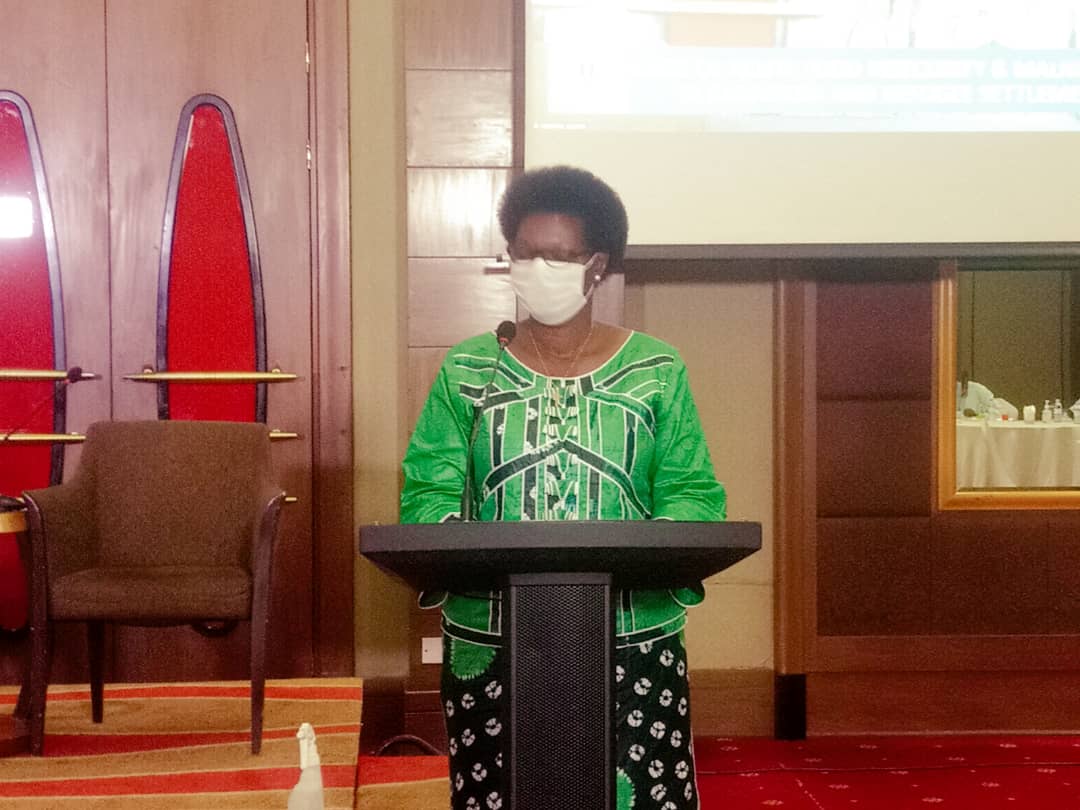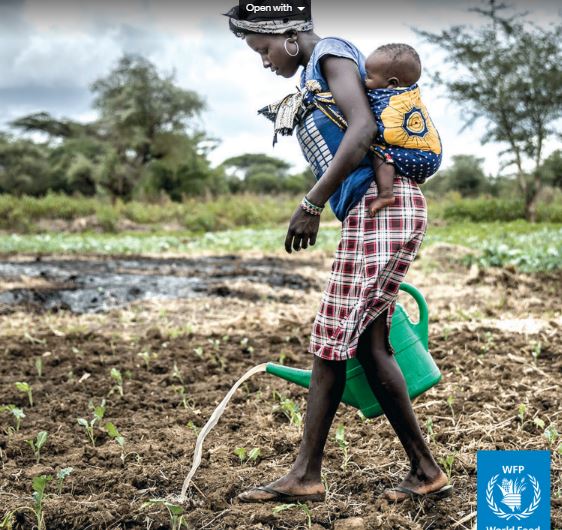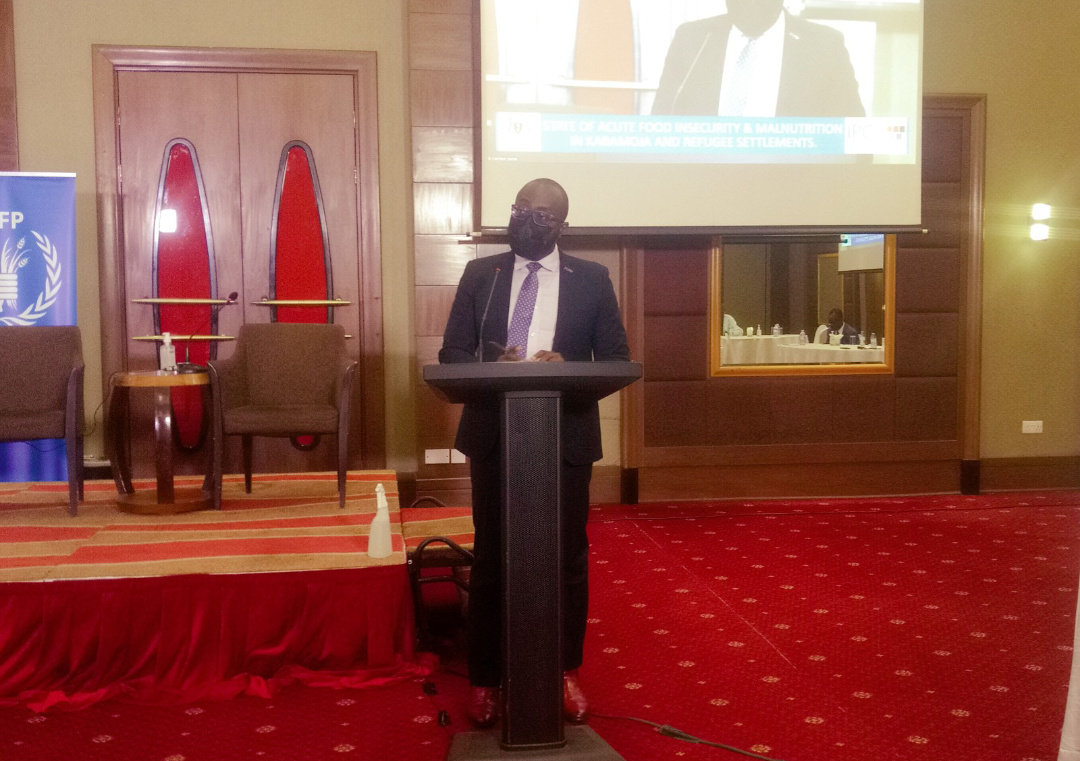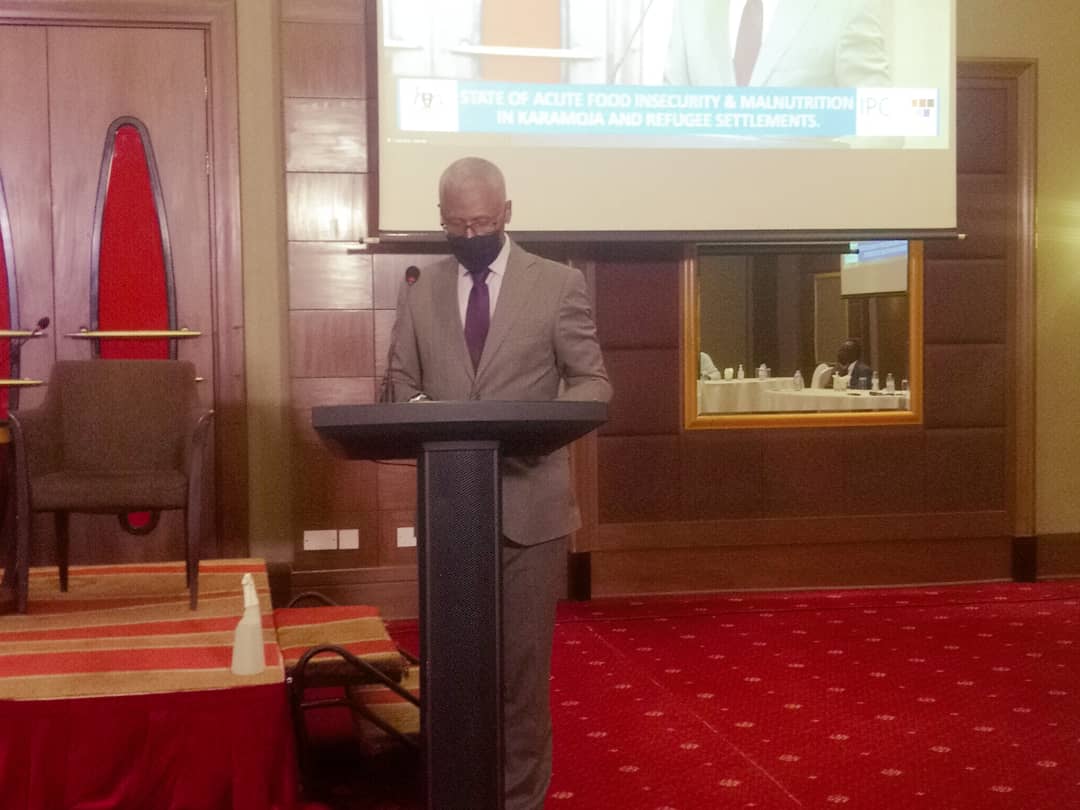
KAMPALA – The Minister of State for Relief, Disaster Preparedness and Refugees, Ms Esther Anyakun, has urged development partners to double efforts, complimenting Government in improving access to safe and nutritious food in Karamoja, and address the negative impacts of climate change.
“Karamoja is one of the regions in Uganda that is most prone to various disasters and shocks. From diseases that affect cattle and people to insecurity caused by persistent raids and a harsh climate that affects food security, we must do everything within our means to change the situation for the better, Ms Anyakun said.
“The analysis shows that Karamoja’s poverty rate is 61 percent – three times the 21.4 percent national poverty rate. We must not leave anyone behind in our pursuit for development. It is time to do more for Karamoja”, she appealed.
Ms Anyakun made the appeal during the launch of the Integrated Food Security Phase Classification (IPC) acute food insecurity and acute malnutrition analysis of Karamoja and 14 refugee settlements in Uganda, on 5 August 2021 at Kampala Sheraton Hotel.
The IPC analysis, produced by the World Food Programme (WFP) and Food and Agriculture Organization of the United Nations (FAO), in partnership with district local governments, the Office of the Prime Minister, the Ministry of Agriculture, Animal Industry and Fisheries, and the Ministry of Health, shows that three out of ten people in Karamoja are either in the crisis or emergency phase of acute food insecurity.
The minister commended the UN for supporting Government to ensure that most vulnerable people such as children under five years, pregnant and breastfeeding mothers have access to the food they need to recover and remain healthy. FAO and WFP are collaborating with Government District Disaster Management Committees to improve early warning systems in the region.
This investment in better preparation for shocks and disasters will ensure that the most vulnerable are able to survive now and in the future.

Of six districts analysed in Karamoja, Kotido, Kaabong, Napak and Moroto have the highest number of people facing food insecurity, a situation exacerbated by the impact of the COVID-19 pandemic and high food prices.
However, it is predicted that during the period August 2021 to January 2022, the food security situation in the Karamoja region is expected to improve.
During the lean period (March to July 2021) – the period between planting and harvesting, communities struggle to find food. The IPC analysis shows that during this year’s lean season, families could only afford to meet half of their dietary needs.
According to the IPC analysis, about 24,581 children in the 14 settlements included in the analysis are likely affected by acute malnutrition and in need of treatment. Furthermore, nearly 3,000 pregnant or lactating women are likely affected by acute malnutrition, also in need of treatment.
“The latest United Nations Annual Food Security and Nutrition Report shows COVID-19 has triggered an 18 percent increase in hunger worldwide, the biggest in decades. In already vulnerable areas such as Karamoja, the pandemic has made a bad situation worse. Hunger threatens our ability to achieve Strategic Development Goals and other development aspirations,” Abdirahman Meygag, WFP Uganda Country Director said.

“Right now, the WFP lean season response is able to reach only the hardest hit. We must intensify our support for Karamoja and raise the funds for it. Let us commit to unite and rewrite Karamoja’s story.”
Minister of State for Fisheries, Hon Hellen Adoa, called for technology adoption and deliberate effort to addressing disasters, through simple and effective interventions that are acceptable to the community.
“We must think about how we can, together, harness the power of technology and information sharing to support Karamoja”, he said. “My ministry is determined to turn all parts of Uganda, including Karamoja, into the food baskets that they can be – if we just work together, invest resources, and bring the interest of the people along our transformational journey” he added.
Dr Antonio Querido, FAO’s Representative in Uganda urged national and development leaders to rethink and innovate sustainable solutions to transform food systems and address the recurrent problem of food insecurity.

“FAO is supporting more than 9 000 vulnerable households in Karamoja, especially those affected by Desert Locusts and floods, to sustain their sources of income. We have also vaccinated animals vaccinated against Foot and Mouth Disease and given cash to over 7 000 vulnerable households in the region”, Dr Querido said.
“However, we need to do more to help the people of Karamoja and all those facing food insecurity,” he added
About the Integrated Food Security Phase Classification (IPC)
The Integrated Food Security Phase Classification (IPC) is an innovative multi-partner initiative for improving food security and nutrition analysis and decision-making. By using the IPC classification and analytical approach, Governments, UN Agencies, NGOs, civil society and other relevant actors, work together to determine the severity and magnitude of acute and chronic food insecurity, and acute malnutrition situations in a country, according to internationally-recognised scientific standards.
The IPC aims to provide decision-makers with a rigorous, evidence- and consensus-based analysis of food insecurity and acute malnutrition situations, to inform emergency responses as well as medium- and long-term policy and programming.
With over 10 years of application, the IPC has proved to be one of the best practices in the global food security field, and a model of collaboration in over 30 countries in Latin America, Africa and Asia.





